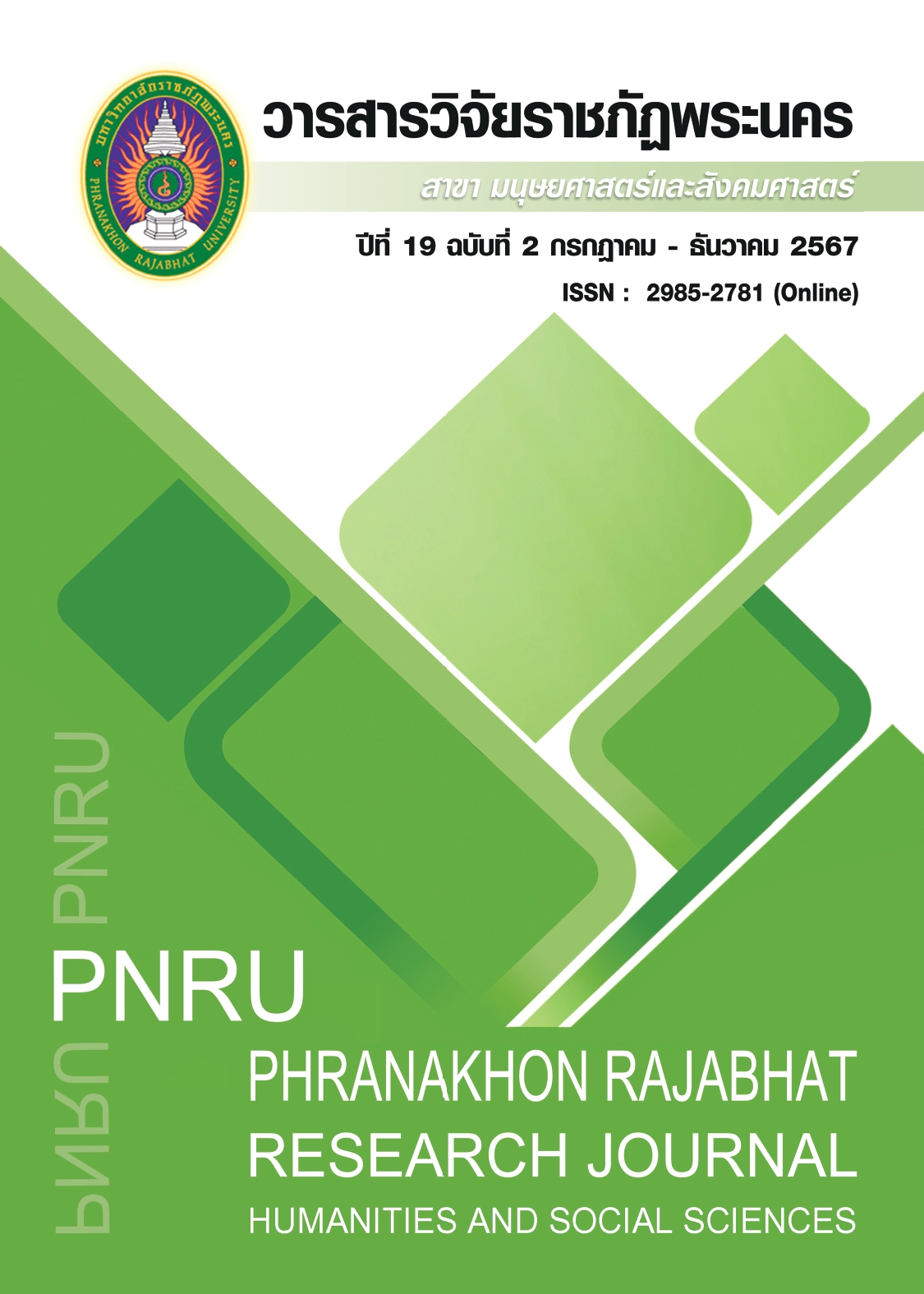REFLECTIONS ON HOW TO CREATE ENGLISH TEACHING MEDIA TO ENHANCE STUDENTS’ ATTITUDES IN EQUITABLE EDUCATIONAL AREAS: A CASE STUDY OF FIVE PRIMARY SCHOOLS IN CHAI NAT PROVINCE
Main Article Content
บทคัดย่อ
This research aimed to investigate students’ attitudes towards English learning before and after using the invented teaching media based on Bloom’s Affective Domain and to give reflections about how to create effective English teaching media to be taught in the inequitable educational areas. The main target populations were 10 teachers and 50 primary 4 school students who teach and study in Wang Man Sub-District, Wat Sing District, Chai Nat Province. Fives primary schools in the selected target area agreed to participate in this research and all research populations were randomly selected by using a purposive sampling method. The questionnaire, the in-depth interview, and observation form were used as research tools. The results revealed that the research populations appeared to have better positive attitudes after using the invented teaching media. The evidences showed that they were able to progress their development to the level 4 of Bloom’s Affective Domain. Additionally, researchers provided reflections on how to create effective English teaching media to be used in the inequitable educational areas including the teaching methods, the features of the teaching media, class activities, and necessary preparations for teachers.
Article Details

อนุญาตภายใต้เงื่อนไข Creative Commons Attribution-NonCommercial-NoDerivatives 4.0 International License.
บทความที่ได้รับการตีพิมพ์เป็นลิขสิทธิ์ของมหาวิทยาลัยราชภัฏพระนคร
ข้อความที่ปรากฏในบทความแต่ละเรื่องในวารสารวิจัยราชภัฏพระนครเล่มนี้เป็นความคิดเห็นส่วนตัวของผู้เขียนแต่ละท่านไม่เกี่ยวข้องกับมหาวิทยาลัยราชภัฏพระนคร และคณาจารย์ท่านอื่นๆในมหาวิทยาลัยฯ แต่อย่างใด ความรับผิดชอบองค์ประกอบทั้งหมดของบทความแต่ละเรื่องเป็นของผู้เขียนแต่ละท่าน หากมีความผิดพลาดใดๆ ผู้เขียนแต่ละท่านจะรับผิดชอบบทความของตนเองแต่ผู้เดียว
เอกสารอ้างอิง
Aramwit, C. and Musikrangsri, S. (2018). Attitudes and variables that influence English speaking- omputer teaching aid program. Kasem Bundit Journal.(19).14-26
Ahmad and Yin. (2019). Students course experience: Reflections of outcome-based education implementation in accounting programmes in higher education. International Journal of Academic Research in Progressive Education and Development, 8(2), 228-238.
Chanyoo, K. (2011). A study of attitudes and needs of Japanese learners studying Thai. Master Dissertation. Srinakharinwirot University
Hutchison and Waters (1989). Geological evolution of South-east Asia (Vol. 13, p. 368). Oxford: Clarendon Press.
Krathwohl, D., Bloom, B. S., & Masia, B. (1964). Taxonomy of educational objectives: The classification of educational goals, handbook II, affective domain. New York, NY: David McKay.
Scrivener, J. (2011). Learning Teaching: The Essential Guide to English Language Teaching (3rd Edition). Oxford: Macmillan.
Yordsingh, P. (2017). Design and development of learning media in order to educate language skill for young children. Master Dissertation. Ubon Ratchathani University.


